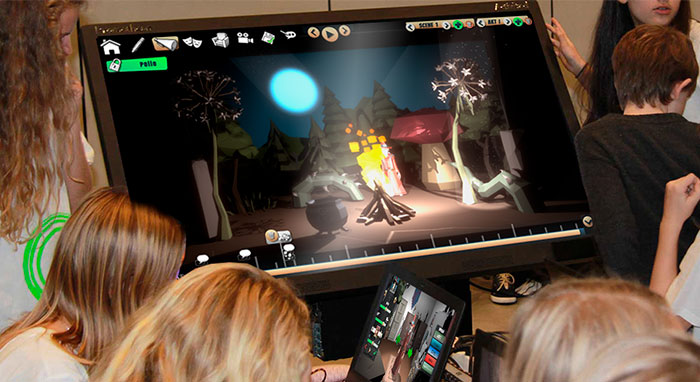#schoolatplay - Will the teacher become redundant when games are used in education?


Sometimes we come across the perception that playing games in class will make the teacher redundant. We at Ugly Duckling Games completely disagree with that!
Take a look at traditional learning games, where the purpose is to train a specific skill such as multiplying single-digit numbers or learning the alphabet. It’s not difficult to see how these games are designed as their own complete ecosystems where students can train and rehearse on their own without the teacher’s attention. In this scenario, it’s conceivable that the teacher in some sense becomes redundant while the students play.
Real games in classrooms
When we use “real” games for teaching, the situation changes completely. Games that are designed to challenge, motivate and engage on its own terms, are a very different matter entirely. Whether you use games like Torchlight II, Fortnite, Minecraft or DramaQueen, the goals and the educational payoff are not provided in advance. The games represent challenges, and through these challenges, they provide an opportunity to acquire knowledge and skills. The pedagogical and didactic focus often needs to originate from the teacher, since it isn’t a central part of the games. In practice though, this means that “real” games are way more flexible to work and teach with, but it also implies that the teacher has to be much more on the ball. In our experience, the best results truly happen when the teacher is joining the game, and are facing the challenges of the game side by side with the students. This way games can be used to create common challenges for the whole class, including the teacher. An experience like facing a difficult boss in a role-playing game can become a powerful teachable moment:
- You will need to make plans
- You will be better off is you use mathematics to optimize the different players builds (characters)
- It will help you and your team if you calculate optimum skill rotations (the order in which the different players activate their skills in the game)
- It would certainly be helpful if you search for, evaluate, and apply guides and walkthroughs from other players
- It is a good idea to hypothesize and test how the game’s mechanics work to optimize your playstyle and make strategically sound choices
For example, is 15% increased damage always the same? When is the damage increase additive, and when is it multiplicative? You might want to or need to, reflect on cooperation, coordination, leadership, participation and so on. All of these are examples of how the teacher and the students can engage in a lot of different disciplines to achieve a common goal, to defeat the boss and move on in the game. You will also all fail and succeed together. This way of using games as meaningful challenges also provides the teacher with the opportunity to change roles from being an obstacle or a mob (short for “Mobile”, used to describe enemies in computer games), to a guide, tutor, and maybe even a partner in dealing with a challenge that the students themselves find relevant and meaningful.
So, to summarize and answer the introductory questions. Does the teacher become redundant when games are used in education? The answer may be “it depends on so much”, but the way we work in the Ugly Duckling Games, the teacher does NOT become redundant. The teacher gets a different role. Goes from boss to teammate, from opponent to hero – and that’s a good thing.
GG!

Læg en kommentar